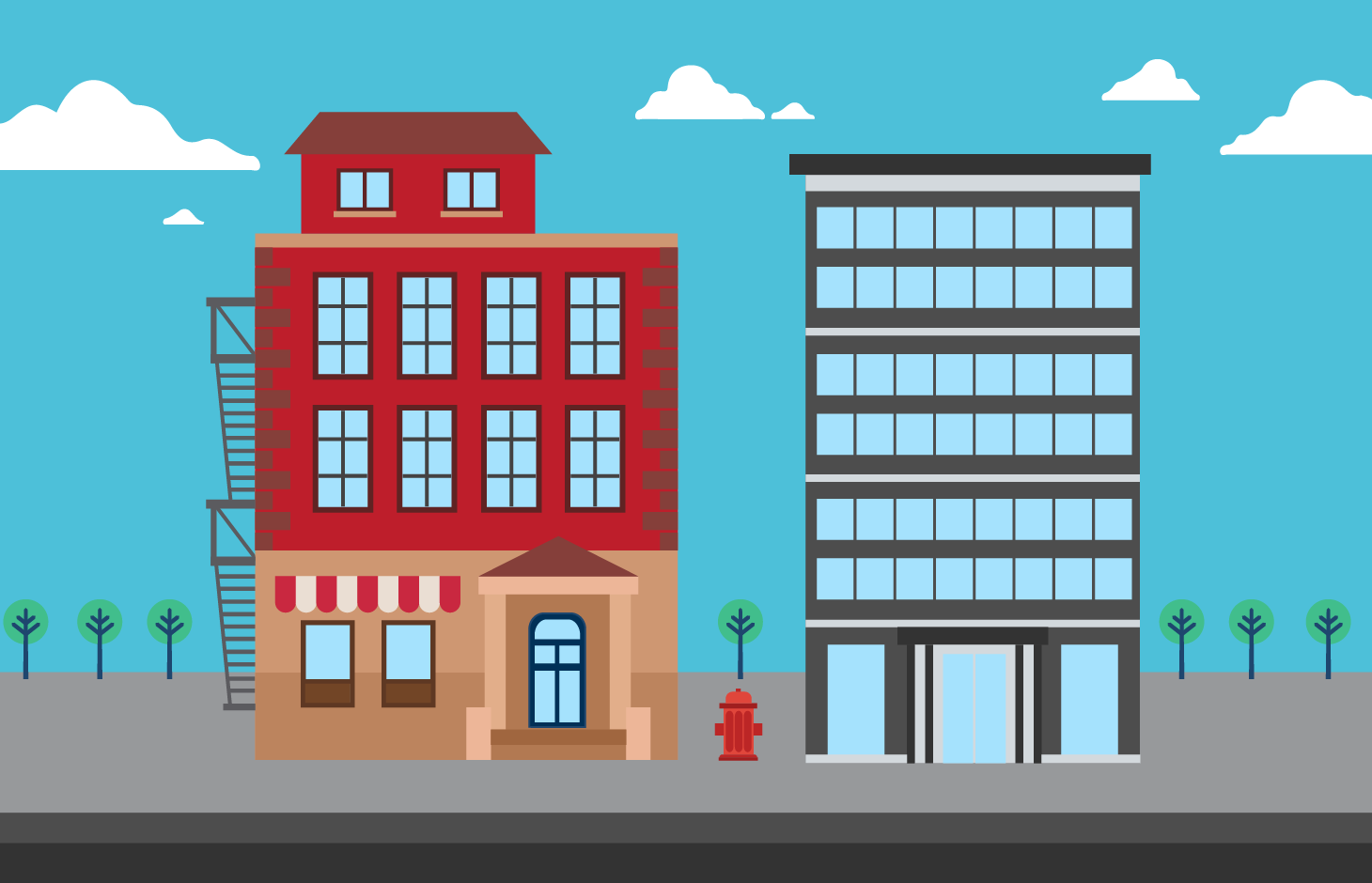
Safeguarding your business premises during COVID-19 temporary closures
You will already be aware of the main threats to your business, such as fire, theft, vandalism, storm damage and cyber-crime. However, whilst your premises are unoccupied or temporarily shut down during lockdown, these now regular circumstances for many Australians highlight additional risks that you might not have had time to consider. These are risks to your business or buildings when closed or unoccupied for an extended period of time, which can pose a significant threat. You will also need to let your insurance company know, if the closure or unoccupancy is likely to be more than 30 – 60 days, as it can have an impact on your insurance coverage.
We take a look at three main risk areas that need additional attention when your business premises are unoccupied during lockdown: external & internal security and protection and digital security.
External security & protection
For businesses that already have CCTV and an alarm system in place, ensure that these are all operational (updating the firmware for the CCTV is also a good idea). If you employ a security firm, inform them that your business or premises will be shut down or unoccupied and review the type and frequency of visits and monitoring. You may also want to consider installing additional physical security, such as bars, locks or lighting.
Remove all external waste, pallets and skip bins from around the building. These could be set on fire and spread to the building or used to access normally out of reach windows. Where practical, ensure essential maintenance continues, including clearing drains and gutters to avoid water damage.
For companies without CCTV or a physical monitoring system, it makes sense to test your alarm system to ensure that it’s operational. Make sure that whatever systems you do have in place are armed for the full 24-hour period, before locking up. Also make sure there are a sufficient number of keyholders available to respond to an alarm in a reasonable time.
Internal security & protection
Check that all doors, windows and storage rooms are locked and that all valuable assets are secured or moved off-site. Ensure that all fire doors, sprinkler systems and fire alarms are operational. Isolate and switch off non-essential services, gas values and turnoff any non-operational equipment. Ensure that any dangerous goods on the premises such as gas bottles and kept secure in their usual storage place, review the inventory levels. Also ensure that important or sensitive records are removed, along with cash or high value items.
Digital security
Unplug all computers and ensure that are in a safe or secure location. If you have your own servers, then may need to remain operational, if so, the information should be backed up daily in a secure off-site location. Any disaster recovery plan should be reviewed and updated. Make sure remote workers keep their login details secure and are hyper-vigilant when online. Refresh your cyber security training and remind staff of the risks of malware, fraud, ransomware and phishing and how important it is to protect the business from cyber-crime.
You can also consider turning off the building’s Wi-Fi access, unless it’s used by your security system (this includes guest Wi-Fi if that’s something you may offer customers). Another consideration is to update your cyber security software so that it notifies you if any malware is downloaded into the system or if any network failures occur. You can also enable a continual monitoring of the system with regular reports on the status of the network sent to your laptop at home.
After the review, if there are risks identified or additional measures you can take to reduce the risks to your property or business, subject to restrictions in your area, these should be actioned soon as possible.
Last, but by no means least, make sure that your insurance adviser is aware that your premises will be unoccupied, or business temporarily shut down during the lockdown. They can also confirm that you have all the correct policies in place to protect your business during lockdown and discuss the impact of the lockdown to your business with your insurers.
To decide what type of insurance policies are suitable for your business, talk to an insurance professional today and find your local adviser.
Important Information
This communication including any weblinks or attachments is for information purposes only. It is not a recommendation or opinion, your personal or individual objectives, financial situation or needs have not been taken into account. This communication is not intended to constitute personal advice.
We strongly recommend that you consider the suitability of this information, in respect of your own personal objectives, financial situation and needs before acting on it. This document is also not a Product Disclosure Statement (PDS) or a policy wording, nor is it a summary of a particular product’s features or terms of any insurance product. If you are interested in discussing this information or acquiring an insurance product, you should contact your insurance adviser to obtain and carefully consider any relevant PDS or policy wording before deciding whether to purchase any insurance product.


